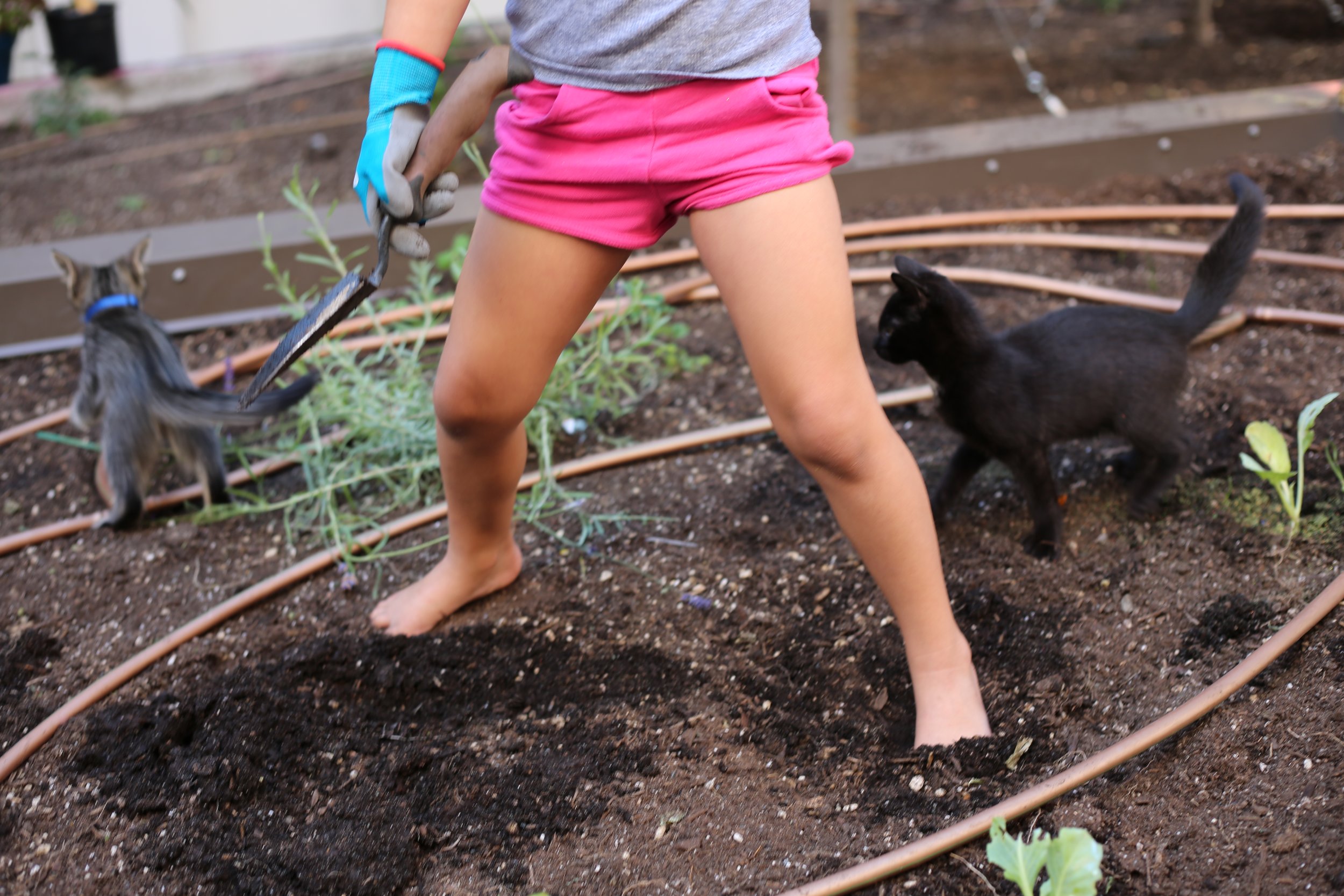Increasing Food Security, One Garden Bed at a Time
/As our Lawns to Lettuce team knows, some spaces–like a sunny lawn–are brimming with potential for an edible landscape. Other areas, however, need a bit of creativity to envision the possibilities. Luckily, our team has the imagination and technical skill needed to transform any space into a multi-purpose, edible wonderland.
In 2022, our Lawns to Lettuce team did just that, converting over 60 plots of land around Snohomish County into abundant garden beds. One notable site was the Latino Educational Training Institute (LETI) campus in Lynnwood.
In an effort to repurpose an unused area in front of their building, LETI worked with us to design and build a demonstration garden to nourish their community members. Soon after the garden beds were complete, tomatoes, cilantro, strawberries, and other tasty fruits and vegetables had taken root.
LETI is a cultural hub that offers trainings, workshops, and community events to the Latino community in Snohomish County. In the spring and summer, LETI families took part in workshops at the demonstration garden where they learned about planting and growing food, storing and using rainwater, and composting food and garden waste. They nurtured the edible plants grown on site and before long, staff and program participants were sharing the literal fruits of their collective labor.
One participant, Ericka, said, “We enjoy watering the garden and seeing the tomatoes, tomatillos, jalapeño peppers, and herbs grow, but most importantly, seeing the results of the hard work everyone put in.”
LETI’s Director of Health and Wellness Program, Marisol Bejarno, emphasized the impact of these community gardens for diverse Snohomish County residents. “Access to the knowledge and materials needed to grow your vegetables and herbs is an excellent opportunity for our community. Being Latino, we come from many small communities with history and roots around growing fresh food. This [garden] allows our community to connect with our culture and have pride and satisfaction in providing fresh food for yourself and your family.”
Our urban agriculture work with LETI was funded by a grant from the National Association of Conservation Districts (NACD), the second time we received such funding. With NACD’s support, the Lawns to Lettuce team was also able to build and expand the garden spaces at HopeWorks Station and Interfaith Family Shelter in Everett. These community gardens improved access to nutritious foods for residents facing food insecurity and will nourish the community for years to come.
Given our staff’s ability to transform a variety of spaces into an edible landscape, our Lawns to Lettuce program could aptly be renamed Parking Lots to Lettuce or Schoolyards to Lettuce. Regardless of the origin of the space, however, the end result is always exciting–an area for individuals, families, and communities to grow and access nourishing food.






